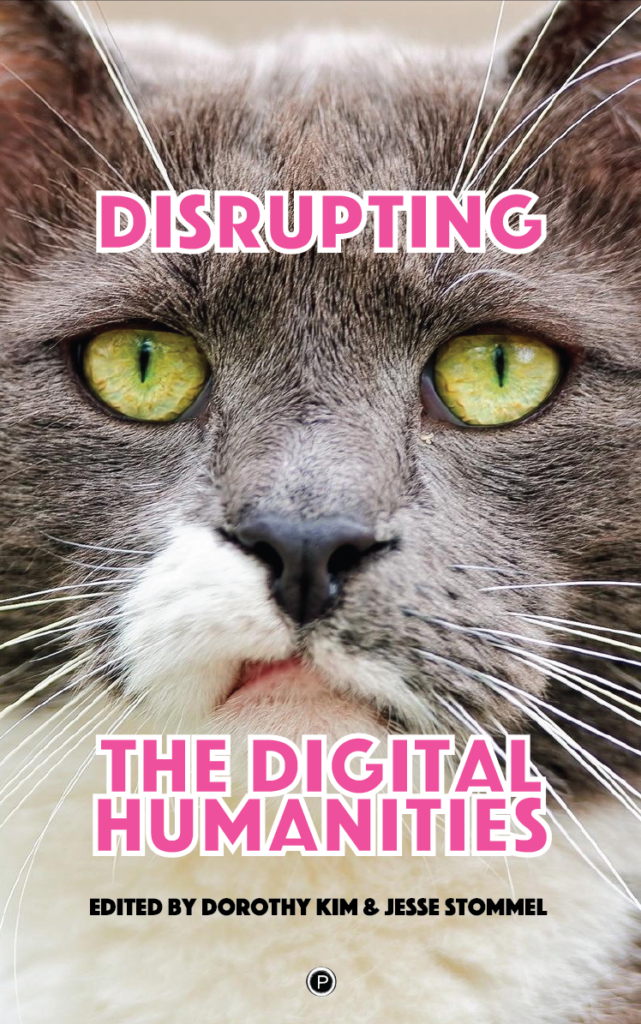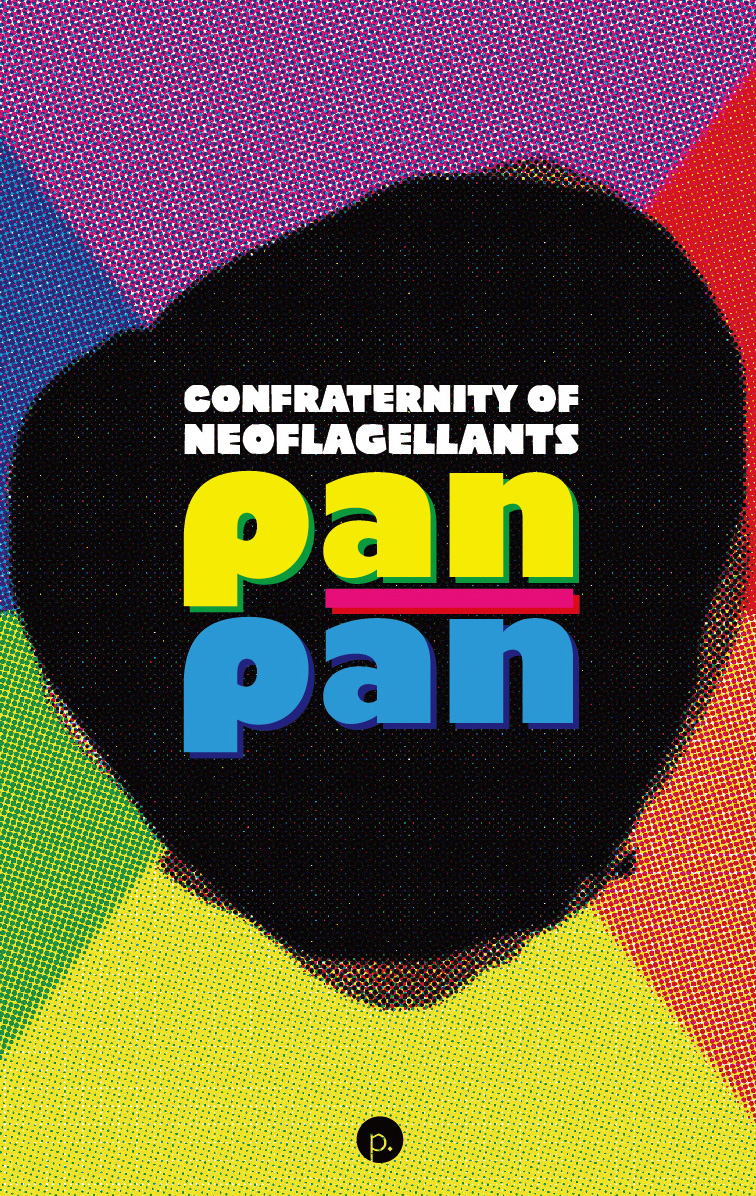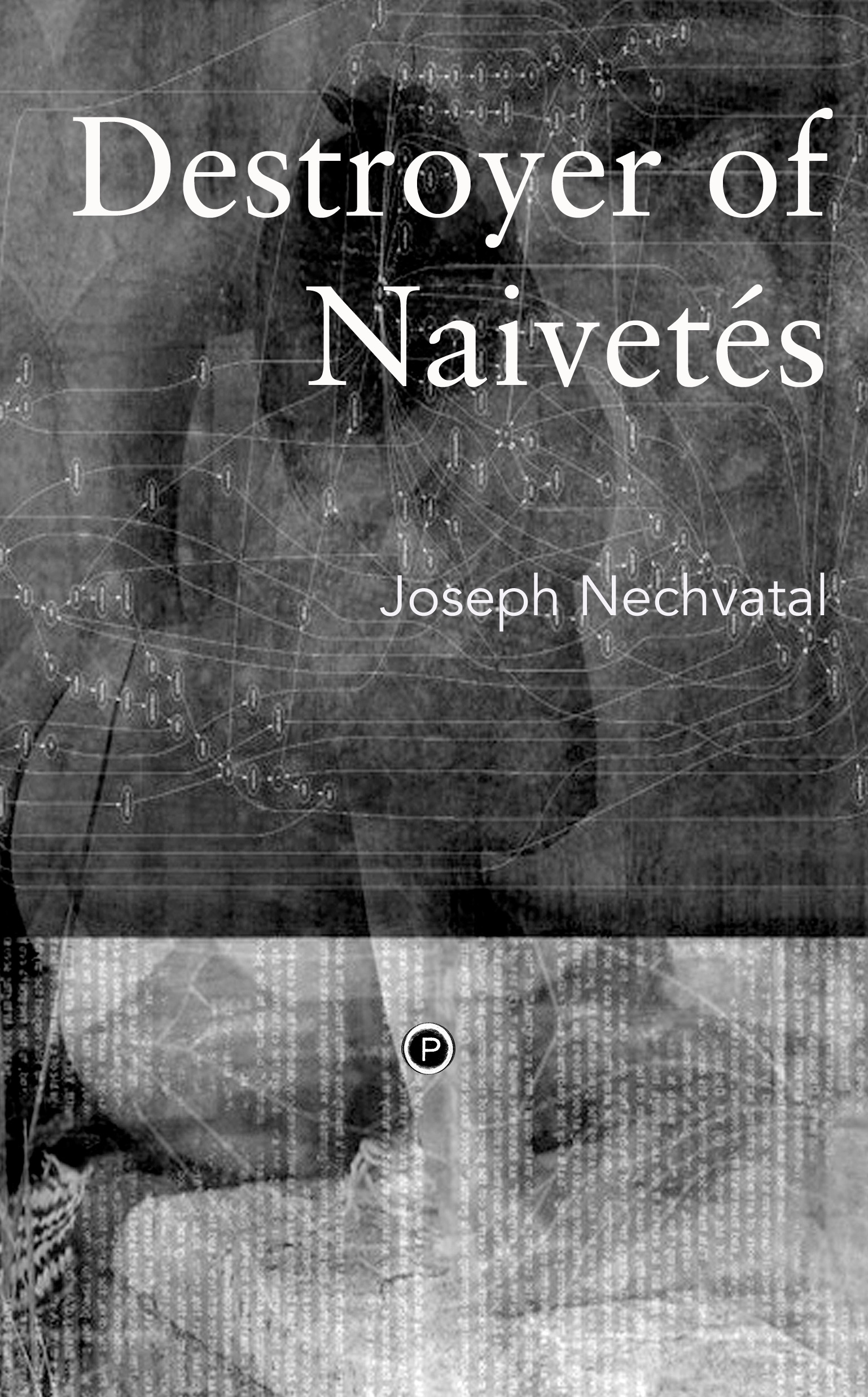All too often, defining a discipline becomes more an exercise of exclusion than inclusion. Disrupting the Digital Humanities seeks to rethink how we map disciplinary terrain by directly confronting the gatekeeping impulse of many other so-called field-defining collections. What is most beautiful about the work of the Digital Humanities is exactly the fact that it can’t be tidily anthologized. In fact, the desire to neatly define the Digital Humanities (to filter the DH-y from the DH) is a way of excluding the radically diverse work that actually constitutes the field. This collection, then, works to push and prod at the edges of the Digital Humanities — to open the Digital Humanities rather than close it down. Ultimately, it’s exactly the fringes, the outliers, that make the Digital Humanities both heterogeneous and rigorous.
This collection does not constitute yet another reservoir for the new Digital Humanities canon. Rather, its aim is less about assembling content as it is about creating new conversations. Building a truly communal space for the digital humanities requires that we all approach that space with a commitment to: 1) creating open and non-hierarchical dialogues; 2) championing non-traditional work that might not otherwise be recognized through conventional scholarly channels; 3) amplifying marginalized voices; 4) advocating for students and learners; and 5) sharing generously and openly to support the work of our peers.
TABLE OF CONTENTS //
Cathy N. Davidson, “Preface: Difference is Our Operating System”
Dorothy Kim and Jesse Stommel, “Disrupting the Digital Humanities: An Introduction”
I. Etymology
Adeline Koh, “A Letter to the Humanities: DH Will Not Save You”
Audrey Watters, “The Myth and the Millennialism of ‘Disruptive Innovation’”
Meg Worley, “The Rhetoric of Disruption: What are We Doing Here?”
Jesse Stommel, “Public Digital Humanities”
II. Identity
Jonathan Hsy and Rick Godden, “Universal Design and Its Discontents”
Angel Nieves, “DH as ‘Disruptive Innovation’ for Restorative Social Justice: Virtual Heritage and 3D Reconstructions of South Africa’s Township Histories”
Annemarie Perez, “Lowriding through the Digital Humanities”
III. Jeremiad
Mongrel Coalition Against Gringpo, “Gold Star for You,” “Mongrel Dream Library”
Michelle Moravec, “Exceptionalism in Digital Humanities: Community, Collaboration, and Consensus”
Matt Thomas, “The Trouble with ProfHacker”
Sean Michael Morris, “Digital Humanities and the Erosion of Inquiry”
IV. Labor
Moya Bailey, “#transform(ing)DH Writing and Research: An Autoethonography of Digital Humanities and Feminist Ethics”
Kathi Inman Berens and Laura Sanders, “DH and Adjuncts: Putting the Human Back into the Humanities”
Liana Silva Ford, “Not Seen, Not Heard”
Spencer D. C. Keralis, “Disrupting Labor in Digital Humanities; or, The Classroom Is Not Your Crowd”
V. Networks
Maha Bali, “The Unbearable Whiteness of the Digital”
Eunsong Kim, “The Politics of Visibility”
Bonnie Stewart, “Academic Influence: The Sea of Change”
VI. Play
Edmond Y Chang, “Playing as Making”
Kat Lecky, “Humanizing the Interface”
Robin Wharton, “Bend Until It Breaks: Digital Humanities and Resistance”
VII. Structure
Chris Friend, “Outsiders, All: Connecting the Pasts and Futures of Digital Humanities and Composition”
Lee Skallerup-Bessette, “W(h)ither DH? New Tensions, Directions, and Evolutions in the Digital Humanities”
Chris Bourg, “The Library is Never Neutral”
Fiona Barnett, “After the Digital Humanities, or, a Postscript”
Conclusion
Dorothy Kim, “#DecolonizeDH or A Practical Guide to Making DH Less White”





Hi! I have bought the physical book and just tried to download the pdf to see if the page numbers match up. I somehow got No Archive Will Restore You.
Hi Sundi, We fixed the download link, thanks for letting us know!
Hi. I pressed download and made a donation but nothing has downloaded to my computer? Please help ASAP
Hi Molly! Sorry for the glitch; try this direct link to the download: http://www.oapen.org/download?type=document&docid=1004695.